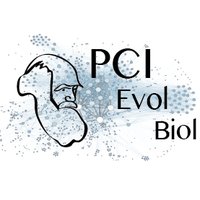An interaction between cancer progression and social environment in Drosophila
This article has been Reviewed by the following groups
Discuss this preprint
Start a discussion What are Sciety discussions?Listed in
- Evaluated articles (Peer Community in Evolutionary Biology)
Abstract
This preprint has been reviewed and recommended by Peer Community In Evolutionary Biology ( http://dx.doi.ors/10.24072/pci.evolbiol.100030 )
The influence of oncogenic phenomena on the ecology and evolution of animal species is fast becoming an important research topic. Similar to host-pathogen interactions, cancer negatively affects host fitness, which should lead to the selection of host control mechanisms, including behavioral traits that best minimize the proliferation of malignant cells. Social behavior is one such trait, which is suggested to influence cancer progression. While the ecological benefits of sociality in gregarious species are widely acknowledged, only limited data are available on the role of the social environment on cancer progression. Here, we exposed adult Drosophila , with colorectal-like tumors, to different social environments. First, we show that cancerous flies kept in complete isolation exhibit increased tumor progression. Yet, more surprisingly, we find that cancerous flies, kept in groups with other non-cancerous individuals, also develop tumors at a faster rate compared to those kept with other cancerous conspecifics, suggesting a strong impact of social group composition on cancer growth. Finally, we show that flies can discriminate between individuals at different stages of tumor growth and selectively choose their social environment accordingly. Control flies actively avoid flies with cancer but only at the later stages of tumor development, whereas cancerous flies display strong social interactions with cancerous flies in the early stages of tumor growth. Our study demonstrates the reciprocal links between cancer and social interactions, as well as highlighting how sociality impacts health and fitness in animals and its potential implications for disease ecology and ecosystem dynamics.


